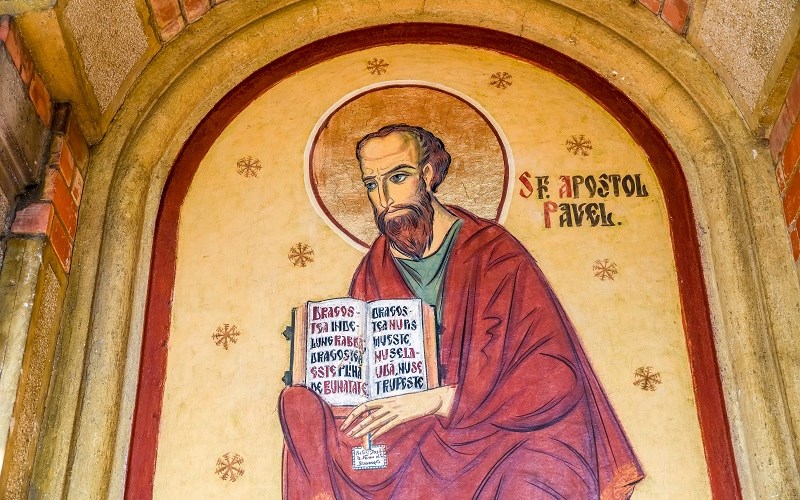

“Is it true that much of Christianity is based on the ideas of Paul rather than on the original teachings of Jesus? My professor said that for centuries Christianity has been distorted by the church.” I was speaking to a campus Christian group at a secular university on the East coast. Several students in attendance from another college indicated that they had heard this opinion in the classroom as well.
The origin and content of the Gospel message is an important issue. Some assume that Jesus’ Sermon on the Mount (Matthew 5-7) gives us the summation of Jesus’ teachings. Love your neighbor. Feed the poor. That just about covers it. Skeptics say things like, “Jesus never mentioned homosexuality,” or “Show me where Jesus ever said that women shouldn’t be pastors!”
Before we get to the subject of Paul, let’s think of the biblical content in three ways: There are the Jewish Scriptures (comprising the Old Testament); the actual words of Jesus recorded in the Gospels (all of which are God’s Word, because Jesus is deity); and everything else in the New Testament besides the sayings of Jesus.
Jesus said that He had not come to abolish the teachings of the Old Testament, but to fulfill them (Matthew 5:43). In the four Gospels we see that Jesus quoted the Old Testament hundreds of times, and taught that the authority of Scripture was timeless (Matthew 24:35, John 10:35). Jesus also promised His disciples, that “the Holy Spirit, whom the Father will send in my name, will teach you all things and will remind you of everything I have said to you” (John 14:26). Thus, Christ affirmed the Old Testament and made provision for the creation of the New Testament. Jesus, in effect, has put His seal of approval on the Bible.
Let’s get back to the question of whether or not the apostle Paul “invented” or distorted Christianity. Saul of Tarsus- a passionate persecutor of the church – became Paul the believer about AD 35. The book of Acts (written by Luke) records Paul’s salvation experience in chapters 9, 22, and 26. In his own writings, Paul also explains his conversion to faith (I Corinthians 9:1, 15:3-8, and Galatians 1:11-18). From about AD 48 until his death around AD 68, Paul wrote at least 13 of the New Testament’s books.
The fact that Paul had originally opposed and persecuted the church proves that he could not have “invented” Christianity. Paul’s use of the words “received” and “passed on”- rabbinical terms for the handing down of teachings- is significant in I Corinthians 15:3-8. In relating the facts about Jesus’ death and resurrection, Paul is saying that what he is presenting is the existing truth that he himself had received. Scholars recognize that this passage contains an early church creed (or statement of belief) that was recited by believers in the days before the New Testament had been written down. Other Scriptures that preserve the early, verbal Christian creeds include I John 4:2, Philippians 2:6, II Timothy 2:8, and Romans 1:3-4. Another notable passage is I Timothy 3:16. Not only is this a confession of belief, it may have actually been part of a hymn that was sung by early believers.
The point is this: The key teachings of the Gospel (Jesus is the sinless Son of God; He died for our sins and rose again; we receive Him as Savior through repentance and faith) pre-date Paul. Paul taught these things, expounded on them, and was used by God to write much of the New Testament. But the core of the Gospel was being widely spread even before Paul was a believer. In the final words I Corinthians 15:8, Paul seemed to acknowledge that he was late getting to the party!
Look at Peter’s sermon at Pentecost, found in Acts 2:14-40. Peter presents the core facts of the Gospel, including Jesus’ Deity, death, and resurrection. Peter preaches the same truths again in Acts 3:12-18. In Acts 5:29-33, Peter addressed Jewish leaders, and again gives the key facts of the Christian message. By Acts 5:42, we read that “Day after day, in the temple courts and from house to house, they never stopped teaching and proclaiming the good news that Jesus is the Christ.”
Two important conclusions emerge: First, the early church knew what they believed, and the teachings were effectively passed on and preserved among the people. Secondly, Paul could not have “invented” Christianity, because he was not even a believer until about two years after Jesus’ crucifixion, resurrection, and the subsequent events of Pentecost. The early church and the content of the Gospel are clearly shown to pre-date Paul.

